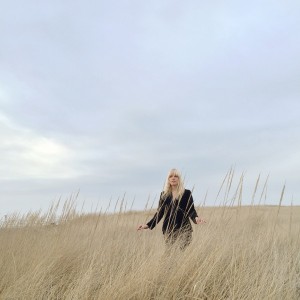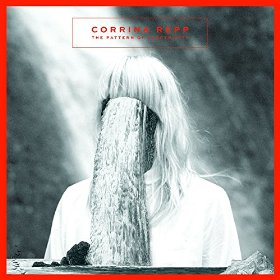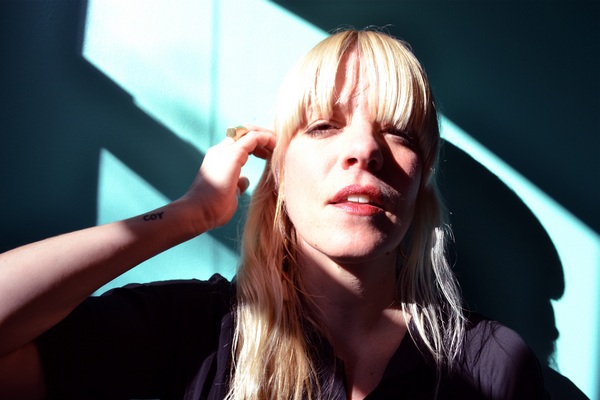Home > Indie
04/20/2015
Corrina Repp: The Road Back to Music – From OMN the Mag
BY ROBERT HAM //
By her own account, Corrina Repp “lost everything that was my life” at the end of 2012.
Tu Fawning, the acclaimed gothic folk group that she co-founded, dissolved after one final tour in support of its second album A Monument. Soon thereafter, Repp’s romantic relationship with her bandmate Joe Haege also came to end after eight years.
Both blows flattened her so much that for nearly 14 months afterward, she stopped playing music altogether.
“I put it all in a closet,” Repp said, nursing an early afternoon beer at a bottle shop off Mississippi Avenue. “I didn’t play. I didn’t sing. The idea of playing music was like ripping off a Band-Aid. It would only just remind me of everything I just lost. It would have been too much.”
To understand what a big deal that actually was, keep in mind that the 41-year-old has been making music for almost the entirety of her two decades living in Portland. In the late ‘90s, Repp balanced recording plaintive, delicate acoustic folk for Hush Records with a stint in a psychedelically inclined pop group called The State Flowers.

As her career moved forward into the next millennium, her music started to expand out, enveloping influences like early jazz, country, and the dark visions of Nick Cave and PJ Harvey. And as her reputation grew, she started getting invites to collaborate with like minded artists such as Nick Jaina and Chad Crouch. For a time, she was even a member of Viva Voce, fleshing out that indie rock duo’s already monstrous live sound.
In 2007, Repp started Tu Fawning with Haege. The band found her making some major shifts in her musical outlook. She switched from guitar to drums, and started writing from a fictional perspective. Even in the band’s promotional photos and videos, Repp put on the airs of a slightly fractured silent movie star, sashaying through the dark corners and tightropes of the world.
After so many years of forward motion and creative momentum, for it to all come to a screeching halt left her shaken and, as she puts it, “moving through the world like half a person.” But, she continues, “I had to at least allow the dust to settle and get some perspective to be able to write again.”
When the muse finally struck (aided in part by a request from a friend to write and sing a song as part of a dance performance), the music started flowing quickly. And what poured out of Repp were the nine songs that make up her latest album The Pattern of Electricity (out early next month on Mark Kozelek’s Caldo Verde Records). This new collection marks the emotional journey of the past two years, a movement from sorrow, frustration, and anger to empowerment, all mapped through a dense thicket of modern folk pop burnished just so with electronic beats and textures.
The album doesn’t pull many punches. With chillingly direct and poetic language, Repp examines the pieces of her fractured relationship, including her own role in its demise (“I believed in what you were…i won’t make you like me/you know what’s in my heart,” she sings on the spooky “Woods”), while also taking stock of a doomed romance she tried to enter into after her breakup with Haege (from “Pattern the Cut_Calm Ass Mofo”: “It came from the sea/I explained it to you…and now I know that we never can/’cause now I know I want more”).
“I listen to it now and it feels cathartic,” Repp says. “But maybe there’s this fearlessness and being okay with really laying it out there, really saying what you are writing about. I cried when writing almost all of these songs. It’s the best form of therapy anyone could ever have.”
She certainly seems unburdened now. Though she still harbors some regrets about dragging a poor soul through the flotsam of her previous relationship well before she was ready, the weight of that fraught period looks to have been lifted thanks to exorcising these demons in song and having a relaxed and joyful time recording them with longtime friend Peter Broderick at his studio near Pacific City.
“It’s really interesting to have so much fun making a record that was really, really personal and had a lot of heartache in it,” she says.
She’s also clear minded enough now to accept that maybe the emotional hardships were necessary to urge her along in her still young musical career.
“I feel that had I not gone through what I had gone through, I would not be writing about the same things. I had to make some difficult choices and be really brave in order to make this record. I had to make them though because otherwise, what do I have to say?”
Tu Fawning, the acclaimed gothic folk group that she co-founded, dissolved after one final tour in support of its second album A Monument. Soon thereafter, Repp’s romantic relationship with her bandmate Joe Haege also came to end after eight years.
Both blows flattened her so much that for nearly 14 months afterward, she stopped playing music altogether.
“I put it all in a closet,” Repp said, nursing an early afternoon beer at a bottle shop off Mississippi Avenue. “I didn’t play. I didn’t sing. The idea of playing music was like ripping off a Band-Aid. It would only just remind me of everything I just lost. It would have been too much.”
To understand what a big deal that actually was, keep in mind that the 41-year-old has been making music for almost the entirety of her two decades living in Portland. In the late ‘90s, Repp balanced recording plaintive, delicate acoustic folk for Hush Records with a stint in a psychedelically inclined pop group called The State Flowers.
As her career moved forward into the next millennium, her music started to expand out, enveloping influences like early jazz, country, and the dark visions of Nick Cave and PJ Harvey. And as her reputation grew, she started getting invites to collaborate with like minded artists such as Nick Jaina and Chad Crouch. For a time, she was even a member of Viva Voce, fleshing out that indie rock duo’s already monstrous live sound.
In 2007, Repp started Tu Fawning with Haege. The band found her making some major shifts in her musical outlook. She switched from guitar to drums, and started writing from a fictional perspective. Even in the band’s promotional photos and videos, Repp put on the airs of a slightly fractured silent movie star, sashaying through the dark corners and tightropes of the world.
After so many years of forward motion and creative momentum, for it to all come to a screeching halt left her shaken and, as she puts it, “moving through the world like half a person.” But, she continues, “I had to at least allow the dust to settle and get some perspective to be able to write again.”

When the muse finally struck (aided in part by a request from a friend to write and sing a song as part of a dance performance), the music started flowing quickly. And what poured out of Repp were the nine songs that make up her latest album The Pattern of Electricity (out early next month on Mark Kozelek’s Caldo Verde Records). This new collection marks the emotional journey of the past two years, a movement from sorrow, frustration, and anger to empowerment, all mapped through a dense thicket of modern folk pop burnished just so with electronic beats and textures.
The album doesn’t pull many punches. With chillingly direct and poetic language, Repp examines the pieces of her fractured relationship, including her own role in its demise (“I believed in what you were…i won’t make you like me/you know what’s in my heart,” she sings on the spooky “Woods”), while also taking stock of a doomed romance she tried to enter into after her breakup with Haege (from “Pattern the Cut_Calm Ass Mofo”: “It came from the sea/I explained it to you…and now I know that we never can/’cause now I know I want more”).
“I listen to it now and it feels cathartic,” Repp says. “But maybe there’s this fearlessness and being okay with really laying it out there, really saying what you are writing about. I cried when writing almost all of these songs. It’s the best form of therapy anyone could ever have.”
She certainly seems unburdened now. Though she still harbors some regrets about dragging a poor soul through the flotsam of her previous relationship well before she was ready, the weight of that fraught period looks to have been lifted thanks to exorcising these demons in song and having a relaxed and joyful time recording them with longtime friend Peter Broderick at his studio near Pacific City.
“It’s really interesting to have so much fun making a record that was really, really personal and had a lot of heartache in it,” she says.
She’s also clear minded enough now to accept that maybe the emotional hardships were necessary to urge her along in her still young musical career.
“I feel that had I not gone through what I had gone through, I would not be writing about the same things. I had to make some difficult choices and be really brave in order to make this record. I had to make them though because otherwise, what do I have to say?”








